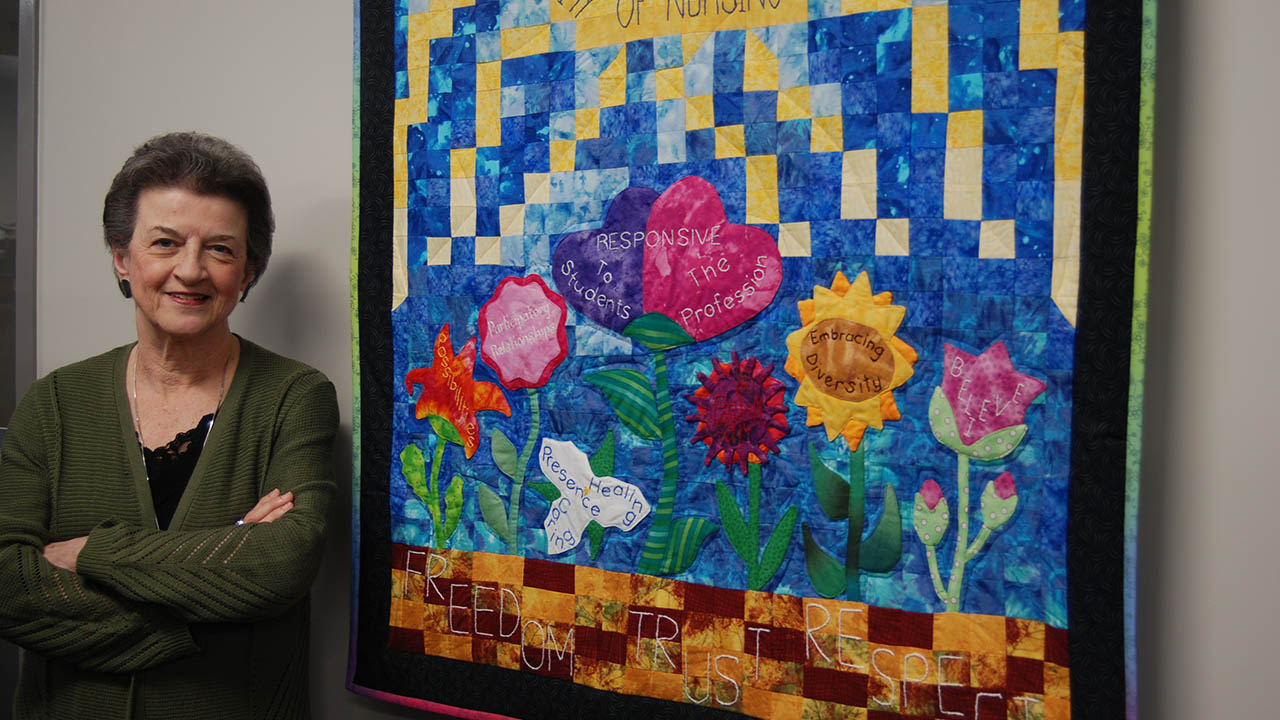Celebrating a century of nursing education
 CREDIT: EMILY STEWART
CREDIT: EMILY STEWARTDr. Sandy DeLuca, the associate dean for Fanshawe College's School of nursing, said the College has a strong long-time relationship with Western University that involved a lot of collaboration before the launch of the collaborative nursing program.
Museum London’s “100 Years of Nursing Education in London” exhibit will allow guests to travel through time for a history lesson.
The exhibit, running from Feb. 1 to May 24, outlines the history of Western University and Fanshawe College’s nursing programs, which includes the introduction of the Western-Fanshawe collaborative nursing program. Fanshawe College archive’s memorabilia will be featured in the exhibit.
Dr. Sandy DeLuca, the associate dean for the Fanshawe School of Nursing, has been part of much of the history between both institutions.
“I’ve had many years of collaboration before we actually had the collaboration,” she said. “I think that’s one of the things that has been really nice about the relationship between Fanshawe and Western and the schools of nursing, because we’ve had that relationship for years.”
She earned her master’s in education, aiming to specialize in health care literature, at Western. DeLuca also has her bachelor of science in nursing degree from the University of Rhode Island and her PhD from the University of Toronto.
She’s still part of Western, working with graduate students and PhD candidates in the Faculty of Health Sciences and researching with physicians in the Schulich School of Medicine and Dentistry’s Centre for Education Research and Innovation (CERI).
For Fanshawe, DeLuca’s taught as a nursing professor, served as the BScN program coordinator, and then worked as the chair of the School of Nursing before becoming the school’s associate dean.
Before the College opened their School of Nursing in 1973, London used to have the hospital schools of nursing. Fanshawe’s nursing students were spread across four sites for the St. Thomas, Woodstock, Victoria Hospital, and St. Joseph’s Hospital campuses. The School of Nursing eventually moved to London’s main campus on Oxford Street in the mid ’80s.
Fanshawe students looking to become registered nurses (RNs) received a three-year college diploma before the diploma program was phased out in 2001. That year, Western and Fanshawe launched their collaborative nursing degree program. As of 2005, it’s mandatory for all RNs to posses their degree.
DeLuca said the collaborative program between Western and Fanshawe required a lot of planning in the ’90s and updated the curriculum.
“There were two big things going on at the same time, but it was a really interesting process,” she said. “That’s the one thing about being here at Fanshawe — you don’t ever just do one thing.”
She added that the students benefit from London’s rich nursing history because faculty from both institutions have been part of the important milestones. Since nursing is Canada’s largest health care profession and has evolved over time, the Museum London exhibit will draw attention to the importance of nursing.
“Nurses tend to be somewhat humble and don’t talk enough about their background and their history and so I think this will help — in terms of the public — for the public to know what nursing is all about because nurses just seem to do their work and we need to spend more time making the work visible.”
Fanshawe’s School of Nursing also offers practical nursing, doula studies, and personal support worker (PSW) programs.
Museum London will host an opening reception on Feb. 1 at 2 p.m.. Visit museumlondon.ca/exhibitions/100-years-of-nursing-education-in-london for more information.














